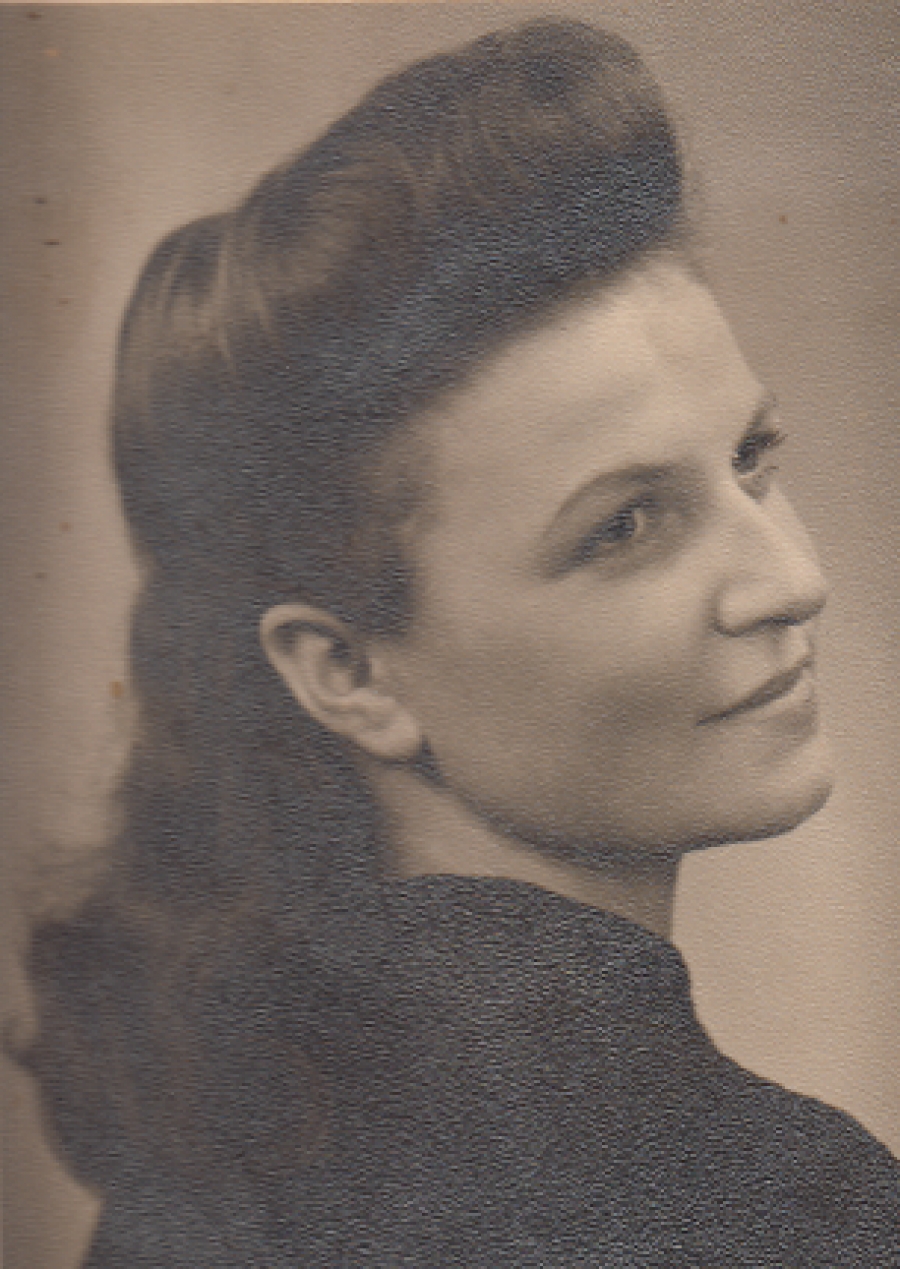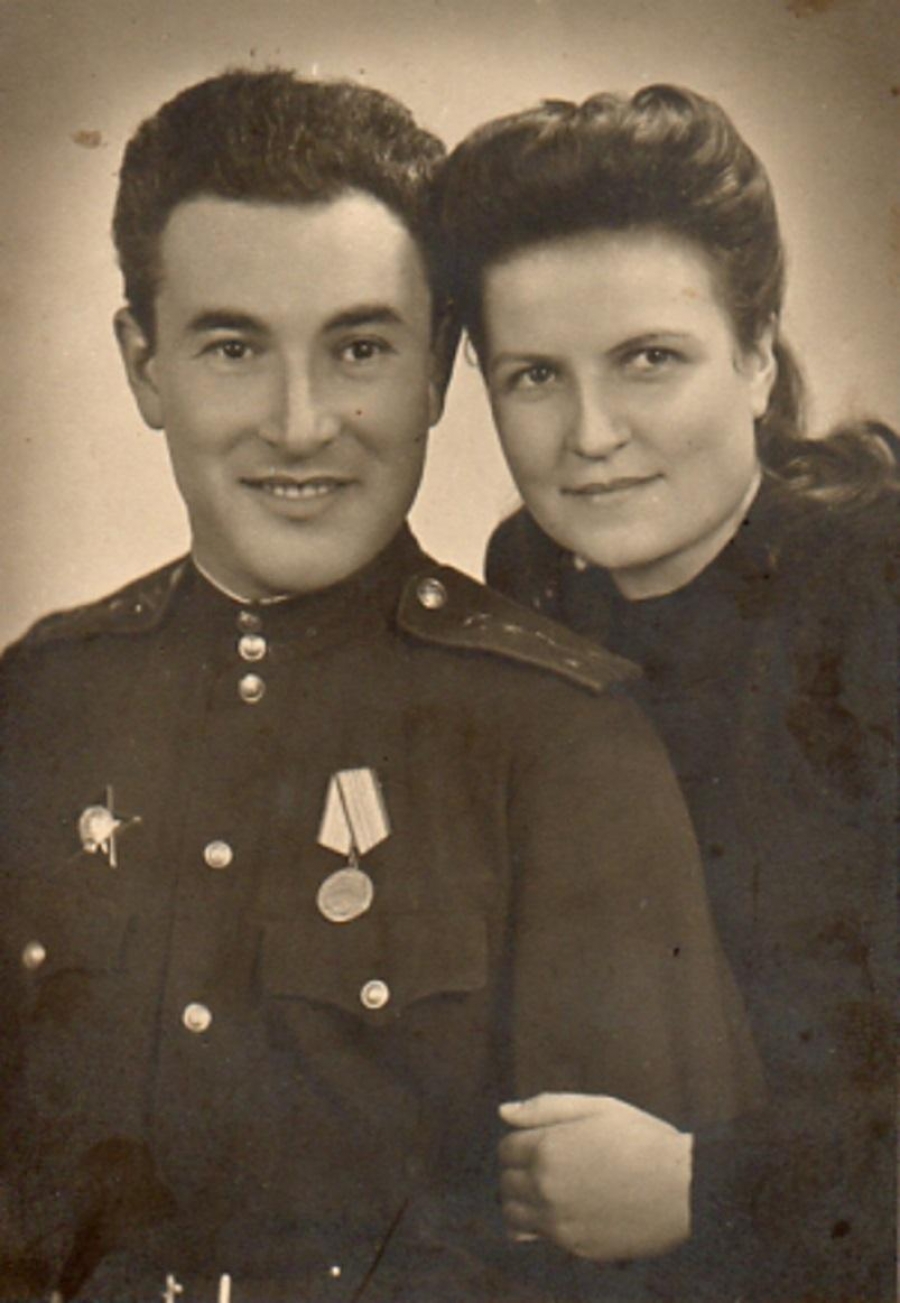Dina Rafalson was born in 1922 in the town of Shklov (now in the Mogiliov Region). When she was two years old, her family moved to Leningrad. There, Dina attended school, graduating from the Tekhnikum (technical school) of Soviet Trade in 1939. Rafalson then completed drafting and construction courses, whereupon she began to work as a draftsperson-constructor at an institute that designed metallurgical plants.
Soon after the outbreak of the Soviet-German war in summer 1941, the institute where Dina was working was evacuated eastward. Dina thus had an opportunity to escape to the Soviet rear, but she stayed with her family in Leningrad.
Enemy forces soon surrounded Leningrad, and, by mid-September 1941, the city was under siege. Together with her mother and sister, Dina volunteered to work at a makeshift hospital. The winter of 1941-1942 in Leningrad was much colder than usual, and its inhabitants, weakened by starvation, would often freeze to death. Together with the other volunteers, Dina visited homes and took starving, ill, and dying people to the hospital.
In early September 1942, at the age of 20, Dina Rafalson volunteered for frontline duty. On several occasions, she took part in fighting in the so-called "Nevskii Piatachok" bridgehead, which was defended by troops of the Leningrad Front under constant enemy fire. The Red Army attempted to widen this bridgehead and, consequently, suffered enormous casualties. A total of 300,000 soldiers were lost in fighting for the Neva bridgehead between 1941 and 1943.
Corporal Rafalson was later transferred to a hospital that treated the troops of the 2nd Shock Army. At first, she was a field nurse, giving first aid to the wounded and carrying them away from the battlefield. Later, however, she herself was wounded, and could no longer go out into the field. As a result, she was assigned to work as a clerk and statistician at the same hospital, and went on to serve there till the end of the war. She met V-E Day in Berlin. In the course of the war, she was awarded the Order of the Patriotic War, 2nd Class, and some medals.
In Berlin, she married the tank crewmember Piotr Gorelik, and the young couple moved to Leningrad.
Dina Gorelik died in 1998 in St. Petersburg.








